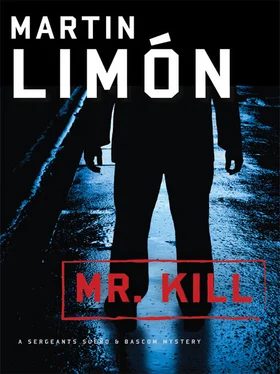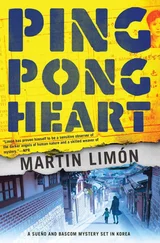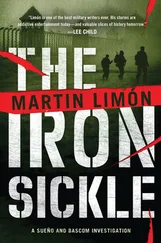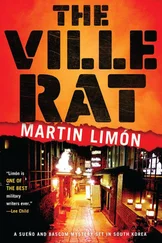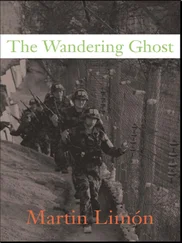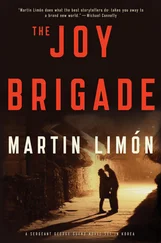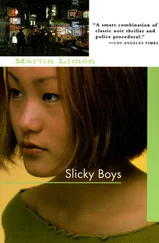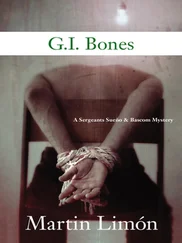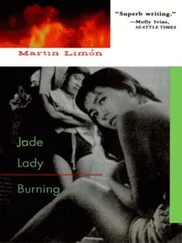Martin Limon - Mr. Kill
Здесь есть возможность читать онлайн «Martin Limon - Mr. Kill» весь текст электронной книги совершенно бесплатно (целиком полную версию без сокращений). В некоторых случаях можно слушать аудио, скачать через торрент в формате fb2 и присутствует краткое содержание. Жанр: Полицейский детектив, на английском языке. Описание произведения, (предисловие) а так же отзывы посетителей доступны на портале библиотеки ЛибКат.
- Название:Mr. Kill
- Автор:
- Жанр:
- Год:неизвестен
- ISBN:нет данных
- Рейтинг книги:4 / 5. Голосов: 1
-
Избранное:Добавить в избранное
- Отзывы:
-
Ваша оценка:
- 80
- 1
- 2
- 3
- 4
- 5
Mr. Kill: краткое содержание, описание и аннотация
Предлагаем к чтению аннотацию, описание, краткое содержание или предисловие (зависит от того, что написал сам автор книги «Mr. Kill»). Если вы не нашли необходимую информацию о книге — напишите в комментариях, мы постараемся отыскать её.
Mr. Kill — читать онлайн бесплатно полную книгу (весь текст) целиком
Ниже представлен текст книги, разбитый по страницам. Система сохранения места последней прочитанной страницы, позволяет с удобством читать онлайн бесплатно книгу «Mr. Kill», без необходимости каждый раз заново искать на чём Вы остановились. Поставьте закладку, и сможете в любой момент перейти на страницу, на которой закончили чтение.
Интервал:
Закладка:
“We should,” I replied.
We were both thinking of the woman on the Blue Train, Mrs. Oh Myong-ja, and her crying children. And we were thinking of the hatred radiating out of the eyes of the people surrounding her. But mostly we were thinking of what Private First Class Runnels, the courier on the Blue Train, had told us after he’d finally opened up. In particular, we both remembered his remark about “the first check mark on a long list.”
Ernie drove to Gate 5. After we were waved through the MP checkpoint, he turned left on the main supply route. Ernie plowed his way through the mid-afternoon Seoul traffic until we reached the turnoff to the Seoul-to-Pusan Expressway. A frisson of fear entered my gut. Misappropriating a vehicle, purposely defying a superior officer’s orders-these were not things to be taken lightly.
“What the hell are you doing?” I asked.
“What do you think I’m doing?” he replied. “That guy has to be stopped, whether Eighth Army likes it or not.”
Ernie made the turn and stepped on the gas.
I didn’t have any counterargument. Ernie was right. Any “checklist” that starts with a brutal rape can’t be good. The little jeep rolled south. Twenty-five kilometers later, a sign with an arrow pointing off to the right said Anyang.
Compared to Seoul, Anyang is a small city. A population of about 10,000, according to my 1973 almanac. After winding our way through a few buildings over three stories tall, we reached the eastern side of the city and finally found the Anyang Train Station.
I flashed my badge to the official in charge of the station; he called the local KNPs; and in a few minutes I was being introduced to Captain Ryu, the chief of the Korean National Police, Anyang contingent. In the late afternoon sunlight, he and Ernie and I walked out onto the tracks. Captain Ryu pointed at the main rail.
“This is the track used by the Blue Train,” he said. “But earlier today, for the first time in years, the Blue Train was ordered off onto that side rail.” He pointed to another track on the west. I translated for Ernie. “They stopped there,” Ryu continued, “for about twenty minutes.” Then Ryu walked us back to the main line. “Coming from Seoul,” he said, “heading south, was the special train carrying the body of our late First Lady, Madame Yuk Young-soo. It was beautiful. The entire front of the engine was covered with a wreath of white flowers. Some of my officers and I stood on the platform there and saluted.” Then he pointed back to the side rail. “Most of the passengers, the ones who ventured outside when the Blue Train stopped, bowed as the First Lady’s train approached.” Captain Ryu stood quietly for a moment. Then he repeated, “It was a beautiful sight.”
Koreans love death. It gives them a chance to practice every Confucian virtue: reverence, obedience, filial piety, loyalty. The greatest moments in Korean lives are when they travel to the grave mounds of their dearly departed, sweep away debris, burn incense, bow, and then have a picnic with the family, including ritual types of food set aside for the deceased. I can’t tell you how many times Koreans have shown me photographs of themselves with their parents and their children and other family members, enjoying one another’s company, sitting on the grass eating rice cakes while the death mound of their grandfather looms in the background.
When Captain Ryu recovered from his reverie, he escorted us to the Anyang Police Station. There he showed us a stack of reports from the cab drivers who had been working this morning when the First Lady’s train passed. “Not one of them,” he said, “picked up a foreigner.”
That wasn’t surprising. There were no American military bases near Anyang. If our theory was correct and the rapist, whoever he was, had taken advantage of the unscheduled stop in Anyang to make his escape, then the first thing he would’ve needed was transportation out of town. He couldn’t stay here. A foreigner would be easy to spot. Already, Captain Ryu had checked the one tourist hotel in town and the three or four dozen Korean inns. No foreigners in any of them. We studied Captain Ryu’s map of Anyang.
“Here,” Ernie said. “Only a little more than a mile from the train station.”
What Ernie was pointing at was the Myong Jin Bus Station.
Within a few minutes we were sitting in the back room of the ticketing office. A nervous young Korean woman, only slightly portly, twisted a white handkerchief in her lap. In hangul, her nameplate said Ju. I asked her to relax, but it didn’t do much good. Then, in Korean, I asked her if she remembered selling a bus ticket to a foreigner.
“Yes,” she said. “It was about eleven thirty a.m. because I hadn’t yet eaten my toshirak.” She was referring to the square metal tin most Koreans use to carry their lunch. Then Miss Ju blushed, probably embarrassed about how she remembered things in relation to food. I encouraged her to continue.
“He was a foreigner. The only one I’ve seen all day.”
“What did he look like?” I asked.
“I don’t know. I didn’t see his face.”
The ticketing window was made of opaque plastic with only a few holes in the middle to speak through and a horizontal slot on the counter through which to slide money.
“If you didn’t see him,” I asked, “how can you be sure that he was a foreigner?”
“Because of the way he spoke. The way he mispronounced Seoul.”
Americans say the name of the Korean capital city as if it were one syllable, like the English word “soul.” Koreans pronounce it the way it is written, with two syllables: “So-ul.”
“That’s it?” I said. “The way he talked?”
Miss Ju twisted her handkerchief even tighter, blushed a brighter shade of crimson, and said, “And his hands too.”
“What about his hands?”
“So hairy,” she said, crinkling her nose, “like a won-sungi.” Like a monkey.
Then she stared at me, her eyes wide, as if she had realized her mistake, and bowed her head, twisting her handkerchief more ferociously than ever.
Ernie and I sat in a draft beer hall across the street from the Anyang Police Station.
“Seoul,” Ernie said. “We’ll never find him there. He’ll just blend in with the crowd.”
“Maybe,” I said.
Captain Ryu had contacted the head of the Myong Jin Bus Line and they were attempting to locate the driver of the bus that had left Anyang at approximately 11:45 this morning, heading for Seoul. While they did so, Ernie and I decided to get some chow. What we ended up with was beer and unshelled peanuts.
Captain Ryu came over a few minutes later and told us that he’d managed to reach the bus driver by phone. He remembered the foreigner on his bus but was unable to describe him other than that he was tall and American. Where he had gotten off the bus in Seoul, the driver didn’t remember, even though there were only two possible choices. The first stop was in front of the Hamilton Hotel in Itaewon in the southern reaches of the city, and the second and final stop was at the Central Bus Station in downtown Seoul, both of which were bustling locations frequented by thousands of people every day. Trying to trace a lone G.I. getting off a bus at either one of those spots would be impossible.
We thanked Captain Ryu for his help, paid for our beer, and left.
“Where the hell you guys been?” the MP said.
We were stopped in front of the big arched gate at the main entrance to DivArty headquarters, Camp Stanley. Ernie’d made good time through Seoul, skirting the downtown area by taking the road along the Han River, past Walker Hill. Still, the sun had set by the time we arrived. Floodlights glared out of the darkness. The MP leaned forward, his M-16 rifle held across his chest.
Читать дальшеИнтервал:
Закладка:
Похожие книги на «Mr. Kill»
Представляем Вашему вниманию похожие книги на «Mr. Kill» списком для выбора. Мы отобрали схожую по названию и смыслу литературу в надежде предоставить читателям больше вариантов отыскать новые, интересные, ещё непрочитанные произведения.
Обсуждение, отзывы о книге «Mr. Kill» и просто собственные мнения читателей. Оставьте ваши комментарии, напишите, что Вы думаете о произведении, его смысле или главных героях. Укажите что конкретно понравилось, а что нет, и почему Вы так считаете.
